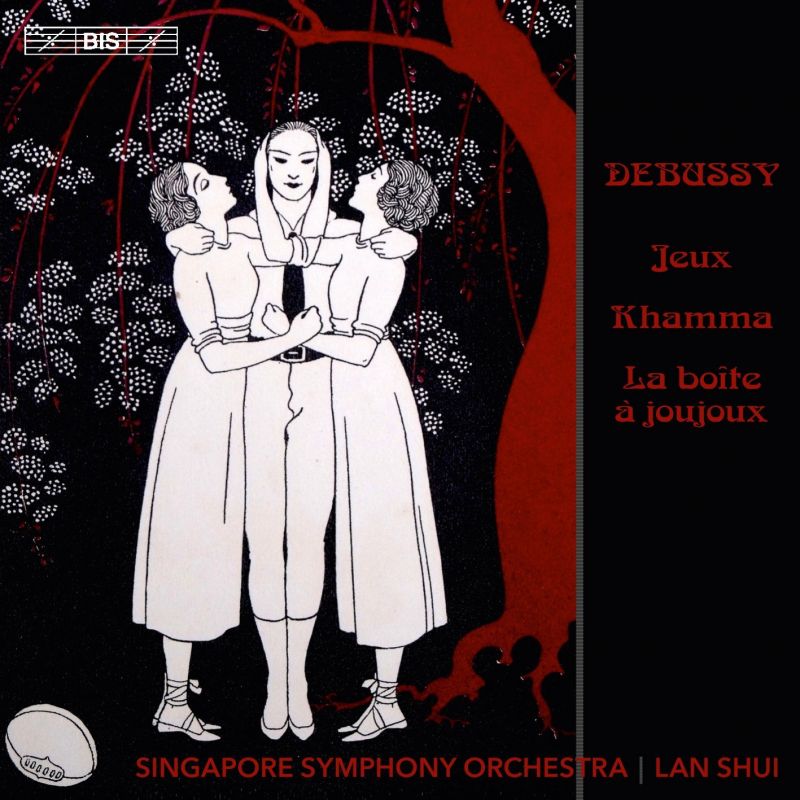DEBUSSY La Boîte à joujoux. Khamma. Jeux
View record and artist detailsRecord and Artist Details
Composer or Director: Claude Debussy
Genre:
Orchestral
Label: BIS
Magazine Review Date: 10/2017
Media Format: Super Audio CD
Media Runtime: 75
Mastering:
DDD
Catalogue Number: BIS2162

Tracks:
| Composition | Artist Credit |
|---|---|
| Jeux |
Claude Debussy, Composer
Claude Debussy, Composer Lan Shui, Conductor Singapore Symphony Orchestra |
| Khamma |
Claude Debussy, Composer
Claude Debussy, Composer Lan Shui, Conductor Singapore Symphony Orchestra |
| (La) Boîte à joujoux |
Claude Debussy, Composer
Claude Debussy, Composer Lan Shui, Conductor Singapore Symphony Orchestra |
Author: Tim Ashley
The conflict between artistic integrity and financial pressure lurks, one suspects, behind Debussy’s ambivalence. Having initially turned Jeux down, he caved in when Diaghilev doubled his fee. Khamma, unheard until 1924, also started life as a money-spinner, when it was commissioned, in 1911, by the Canadian dancer Maud Allan, to a scenario set in ancient Egypt, which pre-empts The Rite of Spring in its depiction of a girl sacrificially dancing herself to death so that the gods will avert an impending military invasion. Debussy entrusted Koechlin with the orchestration but angrily withdrew the score when Allan demanded changes. When the illustrator André Hellé proposed the idea of a ballet for children, La boîte à joujoux, in 1913, however, Debussy accepted with both alacrity and pleasure, rapidly producing the now familiar piano version the same year. Unfinished at his death, the orchestral score was completed by André Caplet and first performed in 1919.
Shui proves a first-rate interpreter of all three works. Jeux is startlingly dramatic, the ebb and flow of the music beautifully judged, the mood unsettlingly erotic and menacing, the orchestral sound darkly sensual. I prefer the greater transparency of Haitink’s Concertgebouw here but the Singapore orchestra’s playing is persuasively vivid and precise. Erotic menace is also integral to Khamma, where the orchestral sound is even darker, and baleful piano ostinatos drive the drama forwards. This is another superb performance, though Shui can’t disguise the inspirational dips in the lengthy sacrificial dance. La boîte à joujoux is done with infinite charm and wit: there are some beautifully poised instrumental solos in the set piece toy-box divertissements. It’s all essential listening if you’re interested in the relationship between music and dance.
Explore the world’s largest classical music catalogue on Apple Music Classical.
Included with an Apple Music subscription. Download now.

Gramophone Digital Club
- Digital Edition
- Digital Archive
- Reviews Database
- Events & Offers
From £9.20 / month
Subscribe
Gramophone Club
- Print Edition
- Digital Edition
- Digital Archive
- Reviews Database
- Events & Offers
From £11.45 / month
Subscribe
If you are a library, university or other organisation that would be interested in an institutional subscription to Gramophone please click here for further information.






